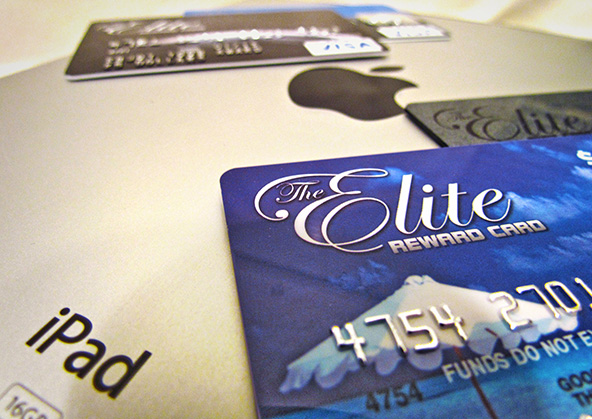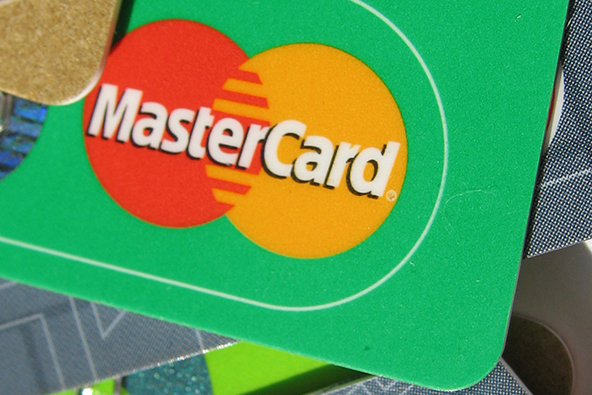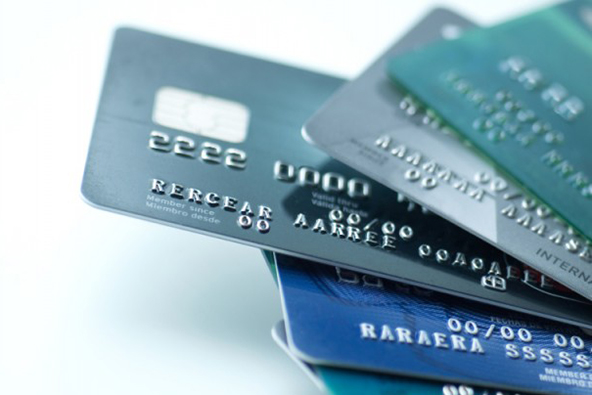Credit Card Rewards Are Better than Ever

We’ve been covering the rapidly improving quality of credit card reward offers in the U.S. in a series of articles on our blog for the past year. And it’s been quite a story. Card issuers began ramping up their rewards programs somewhere in late 2010, even as their charge-off and delinquency rates were still at near record-high levels. Then the issuers gradually whipped themselves into a rewards frenzy, frantically trying to outdo the competitions’ latest incredibly attractive offer. The result is that Americans with very good credit scores are now getting the best credit card offers ever.
Ruth Simon has done a lot of work to bring us up to speed on the current state of affairs in an excellent piece for the WSJ and she finds that credit card rewards programs just keep getting better. There are issuers out there who are luring customers with sign-up bonuses worth more than a $1,000 and there is really no reason to turn down such an offer.
Cr?¿me de la Cr?¿me
Here are the best rewards offers identified by Simon:
J.P. Morgan Chase recently offered as many as 75,000 points, valued by the company at $900, for customers who take its Sapphire Preferred card. Citigroup earlier this year offered some would-be ThankYou Premier customers 80,000 points, valued at $1,060. American Express is offering 100,000 points with its Platinum card, a deal that can be worth as much as $1,200.
Of course, these cards are not for everyone. To get one of them, not only do you need a very high credit score (at least 720, according to one expert quoted by Simon, although I think that’s an underestimate), but you also have to be a big spender. And the issuers are keeping the credit bureaus busy identifying prime targets for their best offers.
Now, if you don’t qualify for a $1,000-bonus offer, don’t despair. You may still be the recipient of an offer worth hundreds of dollars, which was unheard of for any consumer category prior to this latest campaign. And Simon is giving us some specific examples, so go read them.
Should We Accept such an Offer?
So the rewards programs are better than ever, that much is clear. But is there a downside to opening up one of those high-powered credit cards? Well, the potential gains far outweigh the risks, so that really shouldn’t be a concern. Let me explain.
Simon is telling us that opening up a new card would cause a five-point drop in the cardholder’s credit score. I’m not sure how accurate this statement is, as the makers of FICO — the most widely used U.S. consumer credit score — have never released such information. But even if it was correct, a five-point drop would be a very small price to pay. Moreover, the cardholder would be able to quickly retrieve the lost ground simply by doing what she had been doing to gain her high credit score and warrant a big-bonus offer in the first place: keep her balances below 30 percent of the available credit on each account and make her payments on time.
That being said, a high number of new credit applications will leave a longer-lasting negative imprint on your credit score. Following each new application, the lender pulls your credit report and these inquiries remain on your record for two years. Numerous inquiries on your credit file will cause you to appear risky to lenders and hurt your credit score. Keep in mind that only inquiries prompted by a credit application count against you. There are also promotional inquiries into your credit file, which are initiated by lenders with the purpose of offering you credit. These are not prompted by anything you’ve done and have no bearing on your credit score.
The Takeaway
So if you are pre-approved for a new credit card with an incredibly attractive sign-up bonus, there is no reason not to take it. You could only have received such an offer if you had a high credit score, which in turn would mean that you know how to manage credit. And if that is the case, now is the time to reap your rewards. Of course, you shouldn’t go overboard and respond to every single offer you receive in your mailbox, but then you already know that this would hurt your credit score and wouldn’t do it, right?
Image credit: Reward Card Solutions.



I wish you had addressed the issue of minimum spending. Many offers are really good, but they are asking you to spend thousands of dollars before you can get them. I just received such an offer from Citi and am not too excited about it.
Jeff,
You are correct that many offers do come with minimum spending requirements, but from what I’ve seen, most of them are not all that huge.
I hope I get one of these offers you are talking about. My credit score was 680 the last time I checked, so I guess I don’t qualify. What is the lowest score that can get you one of these cards?
It sounds to me that the best credit card offers go to people who need them the least. After all, those with higher credit scores also are the ones with the higher incomes, right? Just a thought…
Brian,
Yes, the best offers do go to the consumers with the highest credit scores and that’s just the way the system works. There is not much that can be done to change that.
So if I lose 5 points of my credit score per application, does that mean that I would lose 20 points if I got 4 new cards or will I lose more? And is there a place we can go to check these things. I know that FICO doesn’t disclose its algorithm.
Kevin,
I don’t know the answer to your question and yes, FICO hasn’t exactly been straightforward with their algorithm. Still, you shouldn’t be applying for too many credit cards within a short period of time.
These point rewards are very difficult to compare because each credit card company values them differently. So what they are saying about 75,000 points being valued at $900 and so on can be true or not depending on who’s counting.
Simon,
Yes, it’s not easy to compare different rewards programs, unless they offer cash back. Still, it is usually possible to convert the points in dollars, although there can be some difficulties there too.
So if I opened up one of these credit cards got my bonus and then closed the account the bank would lose $1,000.
Yes, that’s exactly what would happen if you didn’t use the card.
Good article, thanks! I just applied for a Citi card that offered me $250 sign up bonus. Yes, we shoul be taking advantage of this while it lasts.
Christina,
Yes, I agree.
The card from Penfed (Pentagon Federal Credit Union) Visa Platinum Gas Cash Reward card beats Discover, because it pays 5% casbcahk on gas without a monthly limit. It also pays 1.25% casbcahk on all other purchases, which also beats most other casbcahk cards. Discover limits their 5% rebate to the first $1200 of gas purchases a year, so if you spend more than $100/month on average on gas, your Discover rebate won’t last all year.Make sure you pay at the pump if you go inside, you may not get the rebate. This applies to all gas rewards credit cards.
I think the number of rewards card offers has dropped in the past few months. I may be that the issuers have decided that it makes no sense for them to do that all the time.